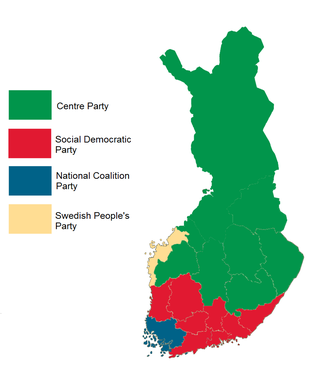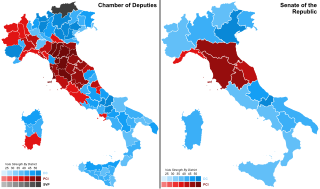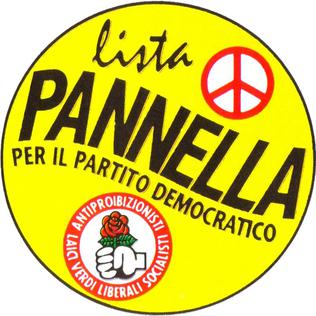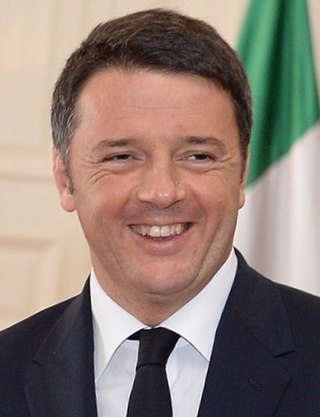
The Democratic Left Alliance was a social-democratic political party in Poland. It was formed on 9 July 1991 as an electoral alliance of centre-left parties, and became a single party on 15 April 1999. It was the major coalition party in Poland between 1993 and 1997, and between 2001 and 2005, with four Prime ministers coming from the party: Józef Oleksy, Włodzimierz Cimoszewicz, Leszek Miller and Marek Belka. It then faded into opposition, overshadowed by the rise of Civic Platform and Law and Justice.
An electoral alliance is an association of political parties or individuals that exists solely to stand in elections.

The 1996 New Zealand general election was held on 12 October 1996 to determine the composition of the 45th New Zealand Parliament. It was notable for being the first election to be held under the new mixed-member proportional (MMP) electoral system, and produced a parliament considerably more diverse than previous elections. Under the new MMP system, 65 members were elected in single-member districts by first-past-the-post voting, while a further 55 "top-up" members were allocated from closed lists to achieve a proportional distribution based on each party's share of the nationwide party vote.

The Italian Democratic Socialists was a social-democratic political party in Italy. The party was the direct continuation of the Italian Socialists, the legal successor of the historical Italian Socialist Party. The Italian Democratic Socialist Party, the other long-time Italian social-democratic party, was merged into it along with other minor parties. The party's long-time leader was Enrico Boselli, a former president of Emilia-Romagna (1990–1993). In 2007, the SDI were merged with other descendants of the PSI to form the modern-day Italian Socialist Party.

The Federation of the Greens, frequently referred to as Greens (Verdi), was a green political party in Italy. It was formed in 1990 by the merger of the Federation of Green Lists and the Rainbow Greens.

The Italian Republican Party is a political party in Italy established in 1895, which makes it the oldest political party still active in the country. The PRI identifies with 19th-century classical radicalism, as well as Mazzinianism, and its modern incarnation is associated with liberalism, social liberalism, and centrism. The PRI has old roots and a long history that began with a left-wing position, being the heir of the Historical Far Left and claiming descent from the political thought of Giuseppe Mazzini and Giuseppe Garibaldi. With the rise of the Italian Communist Party and the Italian Socialist Party (PSI) to its left, it was associated with centre-left politics. The early PRI was also known for its anti-clerical, anti-monarchist, republican, and later anti-fascist stances. While maintaining those traits, during the second half of the 20th century the party moved towards the centre on the left–right political spectrum, becoming increasingly economically liberal.

The 2006 Italian general election was held on 9 and 10 April 2006. Romano Prodi, leader of the centre-left coalition The Union, narrowly defeated the incumbent Prime Minister Silvio Berlusconi, leader of the centre-right coalition House of Freedoms. Initial exit polls suggested a victory for Prodi, but the results narrowed as the count progressed. On 11 April 2006, Prodi declared victory; Berlusconi never conceded defeat and an ensuing dispute formed.

The Christian Democratic Centre was a Christian-democratic political party in Italy from 1994 to 2002. Formed from a right-wing split from Christian Democracy, the party joined the centre-right coalition, and was a member of the European People's Party (EPP).

Parliamentary elections were held in Finland on 16 March 2003. The Centre Party led by Anneli Jäätteenmäki overtook the Social Democratic Party (SDP) to become the largest party in the Eduskunta. This was credited mainly to Jäätteenmäki's powerful leadership and modernization of the party still often viewed as agrarian and conservative by many. However, the SDP actually won some seats and increased its share of the vote, losing in the number of total popular votes only by a few thousand.

The 1976 Italian general election was held in Italy on 20 June 1976. It was the first election after the voting age was lowered to 18.

The Segni Pact, officially called Pact of National Rebirth, was a Christian-democratic, centrist and liberal political party in Italy. The party was founded and named after Mario Segni, a former member of the Christian Democrats who was a prominent promoter of referendums.

The Pannella List is a liberal and libertarian association, which was also the electoral list of the Italian Radicals between 1992 and 1999, when it was replaced by the Bonino List.

The 1994 Italian general election was held on 27 and 28 March 1994 to elect members of the Chamber of Deputies and the Senate of the Republic for the 12th legislature. Silvio Berlusconi's centre-right coalition won a large majority in the Chamber of Deputies but just missed winning a majority in the Senate. The Italian People's Party, the renamed Christian Democracy (DC), which had dominated Italian politics for almost half a century, was decimated. It took only 29 seats versus 206 for the DC two years earlier—easily the worst defeat a sitting government in Italy has ever suffered, and one of the worst ever suffered by a Western European governing party.

The Greens are a green and regionalist political party active in South Tyrol, northern Italy. Once the provincial section of the Federation of the Greens, the party is now autonomous and often forms different alliances at the country-level, but both joined Green Europe, a coalition of green parties for the 2019 European Parliament election, and the Greens and Left Alliance, a coalition with Italian Left for the 2022 general election.

A snap election was held in Italy on 13–14 April 2008. The election came after President Giorgio Napolitano dissolved the Italian Parliament on 6 February 2008, following the defeat of the government of Prime Minister Romano Prodi in a January 2008 Senate vote of confidence and the unsuccessful tentative appointment of Franco Marini with the aim to change the current electoral law. Under Italian law, elections must be held within 70 days of the dissolution. The voting determined the leader of Italy's 62nd government since the end of World War II. The coalition led by ex-Prime Minister Silvio Berlusconi from The People of Freedom party defeated that of former Mayor of Rome, Walter Veltroni of the Democratic Party.

The 2013 Italian general election was held on 24 and 25 February 2013 to determine the 630 members of the Chamber of Deputies and the 315 elective members of the Senate of the Republic for the 17th Italian Parliament. The centre-left alliance Italy Common Good, led by the Democratic Party (PD), obtained a clear majority of seats in the Chamber of Deputies thanks to a majority bonus that effectively trebled the number of seats assigned to the winning force and narrowly defeated the centre-right alliance of former Prime Minister Silvio Berlusconi in the popular vote. Close behind, the new anti-establishment Five Star Movement of comedian Beppe Grillo became the third force, well ahead of the centrist coalition of outgoing Prime Minister Mario Monti. In the Senate, no political group or party won an outright majority, resulting in a hung parliament.

The 2014 European Parliament election in Italy took place on 25 May 2014. Italy elected 73 MEPs out of 751 European Parliament seats.
The electoral system of Turkey varies for general, presidential and local elections that take place in Turkey every five years. Turkey has been a multi-party democracy since 1950, with the first democratic election held on 14 May 1950 leading to the end of the single-party rule established in 1923. The current electoral system for electing Members of Parliament to the Grand National Assembly has a 7% election threshold.

Green Europe, officially Green Europe – Greens, is a green political party in Italy.
Democratic elections have been held in Naples, Italy, since the collapse of Benito Mussolini's fascist regime. Today, all residents of Naples who are at least 18 years old and hold an EU citizenship are eligible to vote for the mayor and the 48 members of the city council. They also vote for the president and the 30 or 40 members of the municipal council in which they reside.

















